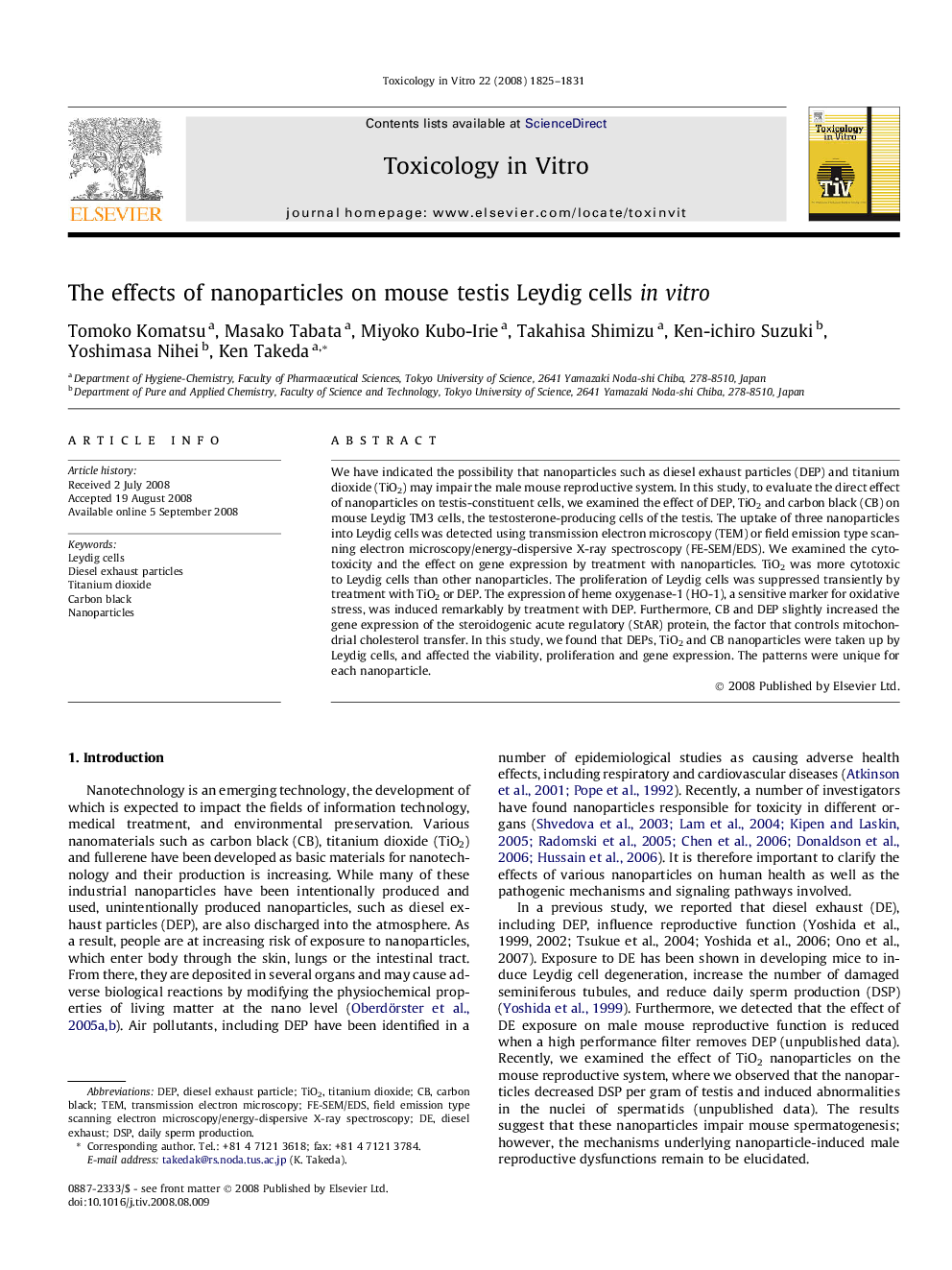| Article ID | Journal | Published Year | Pages | File Type |
|---|---|---|---|---|
| 2602846 | Toxicology in Vitro | 2008 | 7 Pages |
We have indicated the possibility that nanoparticles such as diesel exhaust particles (DEP) and titanium dioxide (TiO2) may impair the male mouse reproductive system. In this study, to evaluate the direct effect of nanoparticles on testis-constituent cells, we examined the effect of DEP, TiO2 and carbon black (CB) on mouse Leydig TM3 cells, the testosterone-producing cells of the testis. The uptake of three nanoparticles into Leydig cells was detected using transmission electron microscopy (TEM) or field emission type scanning electron microscopy/energy-dispersive X-ray spectroscopy (FE-SEM/EDS). We examined the cytotoxicity and the effect on gene expression by treatment with nanoparticles. TiO2 was more cytotoxic to Leydig cells than other nanoparticles. The proliferation of Leydig cells was suppressed transiently by treatment with TiO2 or DEP. The expression of heme oxygenase-1 (HO-1), a sensitive marker for oxidative stress, was induced remarkably by treatment with DEP. Furthermore, CB and DEP slightly increased the gene expression of the steroidogenic acute regulatory (StAR) protein, the factor that controls mitochondrial cholesterol transfer. In this study, we found that DEPs, TiO2 and CB nanoparticles were taken up by Leydig cells, and affected the viability, proliferation and gene expression. The patterns were unique for each nanoparticle.
